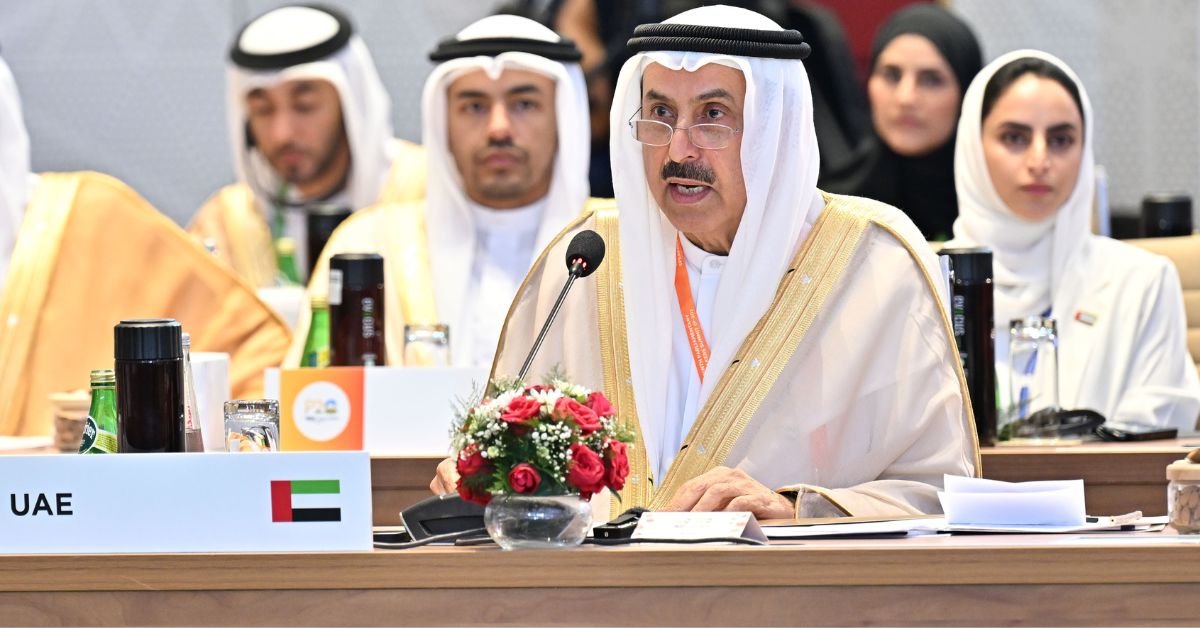NEW DELHI — The UAE has consistently sought a balance between development and environmental protection, said Saqr Ghobash, Speaker of the Federal National Council (FNC) while attending the Ninth G20 Parliamentary Speakers’ Summit (P20), hosted and organized by the Indian parliament in collaboration with the Inter-Parliamentary Union (IPU).
Under the guidance of its leadership, led by President Sheikh Mohamed bin Zayed Al Nahyan, the UAE is actively supporting global efforts to mitigate the effects of climate change at both regional and international levels, he added.
The event saw the participation of Om Birla, Speaker of the Lok Sabha, among other officials and parliamentary speakers.
Ghobash highlighted that the UAE is set to host COP28, scheduled to be held at Expo City Dubai in late November 2023. This event will evaluate global initiatives and actions aimed at achieving net-zero emissions and capping the global temperature rise at 1.5°C.
The UAE envisions COP28 as a pivotal moment for global climate action, aligning with the country’s leadership vision. The nation intends to accelerate the shift to an equitable and clean energy sector, streamline climate action financing, enhance people’s well-being, and involve everyone in the process. “These objectives align with the broader international efforts to realize sustainable development,” he said.
World peace and security, along with social, economic, and political stability, hinge on two pivotal factors: addressing climate issues and investing in clean and renewable energy sources through a just and responsible energy transition, and leveraging advanced technologies to combat the effects of climate change, Ghobash emphasized.
Transitioning to renewable energy demands that all parliaments and regulatory bodies collaborate closely with their national executive institutions. This collaboration should focus on formulating and adopting long-term national policies grounded in robust and transparent legislative frameworks. These frameworks should guide the national strategy on all facets of financing and investing in the renewable and clean energy sector. This includes regulating associated areas like electricity, transportation, fuel markets, and more, he added.
Furthermore, it’s essential to reassess current policies and procedures aimed at achieving sustainable development. This includes examining the steps various countries have taken in response to natural disasters triggered by climate change. Cooperation with regional and international parliamentary institutions is crucial to align on renewable energy targets, financing methods, and strategies for achieving global equity in sustainable development. This collaboration should also encompass agreements to offer financial and technical support to the most vulnerable and impoverished countries, he further noted.
As the UAE gears up to host COP28, the FNC plans to collaborate with the IPU to convene a parliamentary meeting. This gathering will focus on coordinating legislative actions to ensure a safe and sustainable future for everyone, without exception.








